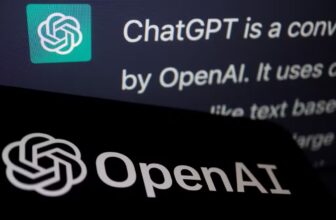A controversial court order has forced OpenAI to save deleted users posts “indefinitely” as part of its ongoing legal battle with the New York Times. However, it appears that’s mostly over—for now.
OpenAI was sued by the Times in December 2023 for allegedly using the Times’s copyrighted material to train its algorithm. Other news organizations also joined the litigation. As part of that case, the AI company was previously ordered to retain its chat logs “indefinitely”—including deleted ones—so that they could be examined for potential evidence related to the case. Ars Technica previously noted that this court order was quite sweeping, and impacted the privacy of “hundreds of millions of ChatGPT users globally.”
Indeed, OpenAI notably made a big stink about the order when it was instituted, characterizing it as an attack on users’ privacy. “The New York Times and other plaintiffs have made a sweeping and unnecessary demand in their baseless lawsuit against us: retain consumer ChatGPT and API customer data indefinitely,” said Brad Lightcap, COO, OpenAI, in June.
Well, it appears the Great Chat Log Retention Saga has come to a close. Ars now reports that, on Thursday, U.S. Judge Ona Wang approved a joint measure that had been submitted by both OpenAI and the Times, which nixed the preservation order that had previously been in place, allowing the company to actually delete the deleted chat logs. That said, Ars notes that “deleted and temporary chats will still be monitored” for some users, although it’s a little unclear who might be impacted.
The chat logs that have already been retained will continue to be made accessible to the news organizations involved in the legal case, as part of the effort to uncover examples of chatbot “outputs infringing their articles or attributing misinformation to their publications,” Ars notes.
While the chat log retention drama may be over, what isn’t over is the battle over copyright law currently embroiling the AI industry. At this point, OpenAI has been sued many, many times on similar grounds. So have other AI firms. The copyright issues surrounding generative AI are still largely unsettled—or, rather, are in the process of being settled via the ongoing legal battles that are currently unfolding.
Trending Products

CHONCHOW 87 Keys TKL Gaming Keyboar...

Lenovo Ideapad Laptop Touchscreen 1...

Logitech MK235 Wi-fi Keyboard and M...

Amazon Fundamentals – 27 Inch...

ASUS RT-AX1800S Dual Band WiFi 6 Ex...

Acer CB272 Ebmiprx 27″ FHD 19...

Wireless Keyboard and Mouse Combo, ...

ASUS 24 Inch Desktop Monitor –...

SAMSUNG 32″ Odyssey G55C Seri...





